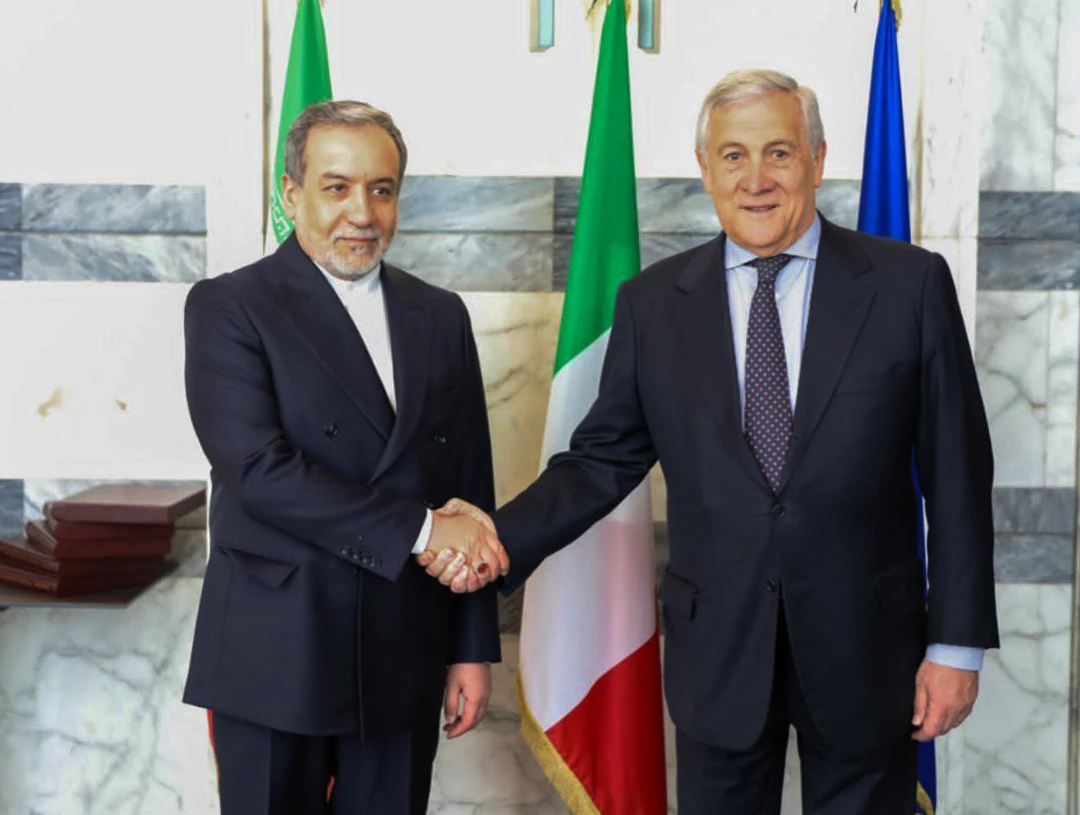Iran, US reach ‘better understanding’ in 2nd round of nuclear talks in Rome
 This picture shows newspaper front page headlines at a kiosk in Iranian capital, featuring the Iran-U.S. talks on the Iranian nuclear programme, Tehran, Iran, April 19, 2025. (AFP Photo)
This picture shows newspaper front page headlines at a kiosk in Iranian capital, featuring the Iran-U.S. talks on the Iranian nuclear programme, Tehran, Iran, April 19, 2025. (AFP Photo)
Iran’s Foreign Minister Abbas Araghchi described the second round of indirect nuclear negotiations with the United States, held Saturday in Rome, as “constructive and good.”
Speaking to Iranian media after the talks concluded, Araghchi confirmed that the next round will take place in Oman. The four-hour session in Rome was mediated by Oman, with Araghchi characterizing the discussions as productive.
He said Tehran and Washington had reached a “better understanding” on several principles and objectives, though he declined to offer specifics. Prior to the next high-level meeting, expert-level technical discussions are set to begin Wednesday in Oman.
Araghchi also urged restraint regarding expectations, warning against “excessive optimism or pessimism” as the negotiations continue.
Echoing Araghchi’s assessment, Iranian Foreign Ministry spokesman Esmaeil Bagaei called the meeting “useful indirect talks” conducted in a “constructive atmosphere.” In a post on X, Bagaei said the two sides agreed to continue technical-level talks in the coming days, followed by another senior-level round next Saturday.

‘Constructive atmosphere’ once again
The indirect talks, focused on Iran’s nuclear program, were launched last Saturday in Muscat under Omani mediation. Iran described the first round as taking place in “a constructive atmosphere based on mutual respect.”
After speculation about the venue for the second session, the Iranian delegation, led by Araghchi, and the U.S. delegation, headed by Steve Witkoff, special envoy for the Middle East, reconvened in Rome.
U.S. President Donald Trump has threatened military action against Iran if a new agreement cannot be reached to replace the 2015 nuclear deal brokered during the Obama administration.

On Saturday, prior to the U.S.-Iran meeting, Araghchi also held talks with Italian Foreign Minister Antonio Tajani.
According to Iranian media, Araghchi reiterated Iran’s long-standing position, labeling Israel “the only obstacle to the realization of a nuclear weapons-free West Asia.”
In a statement, the Italian Foreign Ministry said Tajani reaffirmed Rome’s support for diplomacy, calling the Italian capital “a center of peace and dialogue.” The statement added that “the Italian government hopes for a positive solution that could contribute to stability in the Middle East.”



